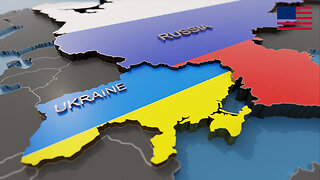Premium Only Content

AI signals vs. human intuition: Decision-making in crypto trading - Cointelegraph
🥇 Bonuses, Promotions, and the Best Online Casino Reviews you can trust: https://bit.ly/BigFunCasinoGame
AI signals vs. human intuition: Decision-making in crypto trading - Cointelegraph
Traditionally, traders have relied on human-based pattern recognition and technical analysis, looking at the company’s financial health, competitors and other methods for determining what trades to make on an asset. However, with the growth of artificial intelligence (AI), there are additional ways that traders can analyze the markets, using the data gathered via machine learning. Both methods have their place in the industry, but it is best to understand how they both work and their benefits and drawbacks. AI plays a crucial role in cryptocurrency trading by providing insights and predictions based on vast amounts of data. Cryptocurrency markets are highly volatile and operate 24/7, making it challenging for traders to keep up with the constant fluctuations. AI algorithms can analyze and interpret complex market data in real-time, enabling traders to make informed decisions and maximize their chances of profitable trades. AI utilizes advanced data analysis techniques and pattern recognition to understand and predict market trends. By employing AI-based trading algorithms and platforms, traders can gain insights, automate trading strategies and potentially improve their overall trading performance in the cryptocurrency markets. The role of human intuition in decision-making Human intuition involves making decisions based on instinct, gut feelings and personal judgement. It plays a significant role in decision-making processes across various domains, including trading. Intuition involves tapping into unconscious knowledge, experience and emotions to make judgements. Traditional human-based trading methods include technical and fundamental analysis. Technical analysis involves studying historical price and volume data to identify patterns, trends and indicators to guide trading decisions. Traders using technical analysis rely on charts, graphs and mathematical tools to predict future price movements and make buy or sell decisions. Fundamental analysis focuses on evaluating the intrinsic value of an asset by analyzing relevant financial, economic and qualitative factors. This approach involves studying financial statements, company news, industry trends and macroeconomic indicators to assess an asset’s value and potential growth. Recent: AI in healthcare: New tech in diagnosis and patient care Anthony Cerullo, chief communications strategist at Walbi — an AI-powered decentralized finance platform — told Cointelegraph, “We can all agree that AI lacks human intuition. It lacks that ‘gut feeling’ that says when something is right or wrong. In terms of quantitative analysis in trading, that gut feeling is useful.” Cerullo continued, “Human intuition helps to provide a subjective understanding of market dynamics, investor sentiment and potential opportunities that are not captured solely through numerical data.” However, the benefits of human intuition don’t make AI obsolete, according to Cerullo. Instead, a relationship combining the two may be beneficial: “This is not to say human intuition is better than AI — just that it can do things AI cannot do.” “Furthermore, AI can do things humans are not capable of either. That’s why a relationship between the two — and not a competition — is the best possible outcome.” Comparing AI and human intuition AI signals offer distinct advantages in trading, including speed, scalability and the ability to reduce emotional bias. AI algorithms excel at processing and analyzing large volumes of data in real-time. This enables traders to swiftly respond to market changes and execute trades at optimal times. In highly volatile markets, where prices can fluctuate rapidly, the speed advantage of AI signals can be particularly valuable. Traders can capitalize on timely opportunities and make informed decisions without being hindered by delays in data analysis. Scalability is another notable advantage of AI signals. These algorithms can be scaled to analyze multiple cryptocurrencies or markets simultaneously. This scalability empowers traders to monitor and trade across various markets, expanding their trading opportunities and potential profits. As AI gains popularity, a variety of supposedly AI-driven trading bots have appeared. Source: Twitter AI signals also offer the benefit of reducing emotional bias i...
-
 2:00:46
2:00:46
Steven Crowder
6 hours agoFight! Major Lawsuit Announcement...
424K257 -
 19:50
19:50
Clownfish TV
15 hours agoFacebook FIRED 'Underperforming' Employees and They're P*SSED!
8134 -
 8:34
8:34
Dr. Nick Zyrowski
27 days agoWhat Happens If You Take High Dose NAC ( N-Acetyl Cysteine) For 14 Days
13.9K12 -
 25:31
25:31
The Boomer Effect
4 hours agoPotential Employees and Employers: What You Need to Know For The Hire
191 -
 LIVE
LIVE
The Dana Show with Dana Loesch
2 hours agoTRUMP AND ELON MUSK DEFEND DOGE | The Dana Show LIVE On Rumble!
641 watching -
 59:31
59:31
Grant Stinchfield
2 hours ago $2.81 earnedThe Heist of Fort Knox That President Trump Thwarted
32.2K18 -
 1:58:34
1:58:34
The Charlie Kirk Show
2 hours agoTHE CHARLIE KIRK SHOW IS LIVE 02.19.25
56.2K13 -
 1:00:47
1:00:47
The Dan Bongino Show
5 hours agoWhat Did Zelensky Know? When Did He Know It? (Ep. 2426) - 02/19/2025
573K1.04K -
 45:27
45:27
Benny Johnson
4 hours ago🚨Kash Patel WINS Critical FBI Director Confirmation Vote as Trump MASS FIRES Deep State Prosecutors
82.5K89 -
 1:08:01
1:08:01
Timcast
4 hours agoDemocrats PANIC Over Trump Order To "Seize Control" Of Federal Agencies, Trump Asserts FULL Control
132K88